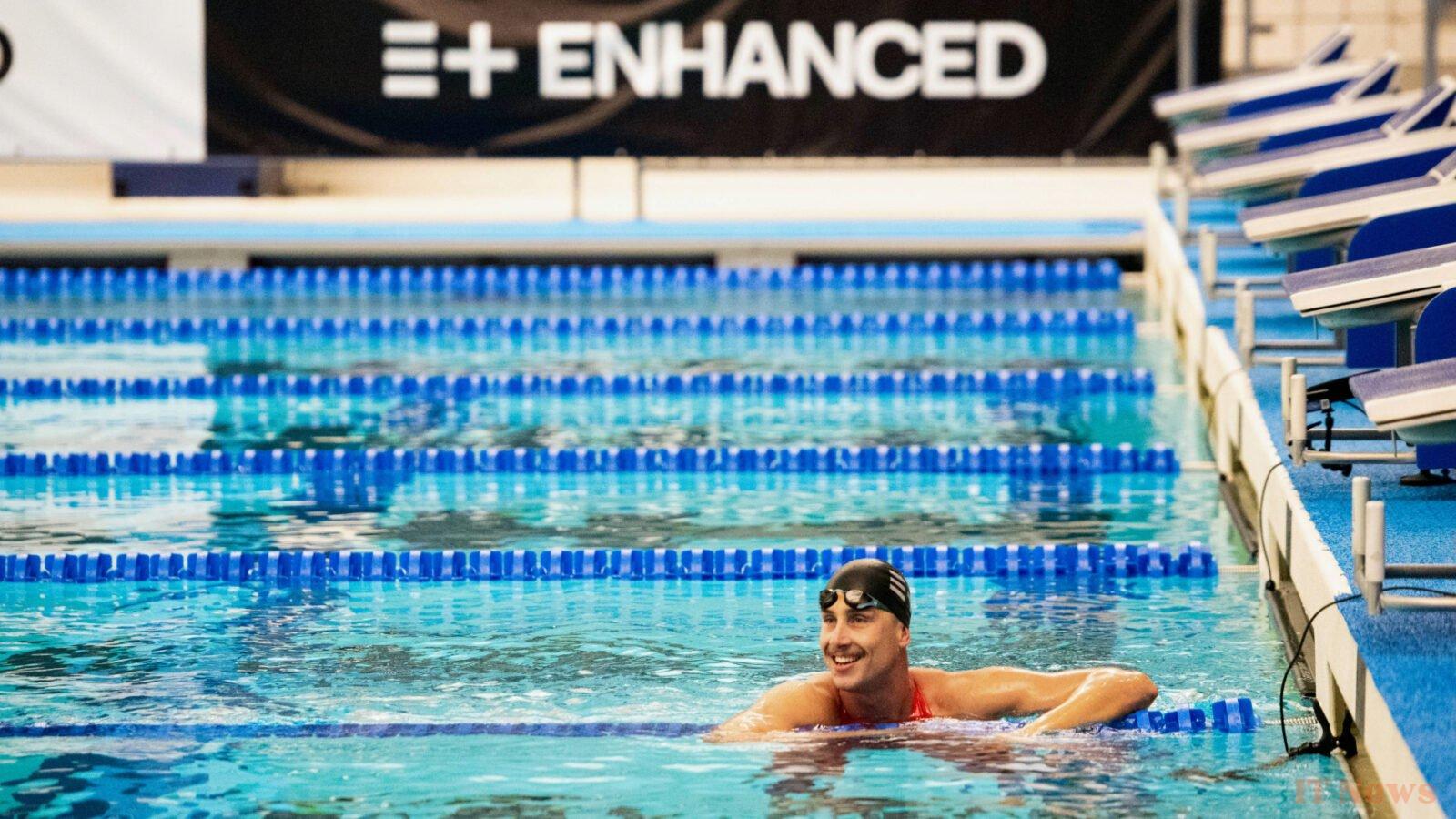At the origin of this disruptive project: Aron D’Souza, Australian entrepreneur and former close associate of Peter Thiel. His idea? To create a competition parallel to the Olympic Games, where athletes can use substances that enhance physical performance, under strict medical supervision. Here, there are no anti-doping tests or sanctions: the very principle is based on the assumed acceptance of pharmacological enhancement. According to its promoters, this is not cheating, but a “liberation” of human potential, made possible by science.
See you in Las Vegas in May 2026
The first edition of the Enhanced Games will take place from May 21 to 24, 2026 at Resorts World, in the heart of the Las Vegas Strip. Swimming (50 and 100m freestyle, butterfly), athletics (100m, hurdles, indoor sprint) and weightlifting (snatch, clean and jerk) will make up a limited but explosive program. Another new feature: the events will be divided not by gender, but according to XX or XY chromosomes, a categorization that the organizers consider more "biologically relevant."
The huge selling point is the prize money: $500,000 for a victory, $1 million for a world record in the premier events. This sum is financed by a handful of renowned investors: Peter Thiel, Donald Trump Jr., Balaji Srinivasan, but also funds from the Middle East. The project has raised tens of millions of dollars and is counting on revenue from streaming, online betting, and a future “Enhanced Performance” supplement brand.
Several champions have already announced their participation
Australian Olympic swimming medalist James Magnussen has confirmed that he will return to the 50 meters, boosted by a controlled cocktail of testosterone, peptides, and growth hormones. Greek-Bulgarian dual national sprinter-swimmer Kristian Gkolomeev has already set an unofficial 50m freestyle record of 20.89 seconds, outside the official circuits. Other names, such as Andriy Govorov (Ukraine) and Josif Miladinov (Bulgaria), have also been mentioned. According to D’Souza, more than 500 athletes are in discussions with the organization!
A red line crossed and a legal gray area
On the institutional side, the reaction is unequivocal, with the World Anti-Doping Agency (WADA), the International Olympic Committee (IOC), and numerous national sports federations denouncing an “irresponsible and dangerous” event. The main criticism: encouraging medical doping could influence younger people and set back decades of fighting for clean sport. The Enhanced Games are also perceived as a product of “financial logic” rather than a sporting ideal, where performance is dictated by pharmaceuticals more than by training.
Legally, the Enhanced Games operate in a legally gray area but technically legal. In the United States, nothing prevents a private competition from establishing its own rules, as long as they do not contravene health laws. By limiting substances to FDA-approved products and ensuring supervised medical monitoring, organizers avoid any formal ban. But for athletes, the price to pay is clear: exclusion from the Olympic Games, official competitions, and any recognition by traditional federations. Some federations have even warned that they could retroactively sanction their licensees. In the event of side effects or complications, the liability framework remains unclear, and legal disputes are anticipated in the years to come.
A little less than a year from the launch, the project is generating as much enthusiasm as outrage. Broadcast contracts remain to be confirmed, but private streaming platforms and alternative broadcasters are already reportedly in discussions. No "mainstream" sponsor has yet come forward, a sign that reluctance remains high.



0 Comments